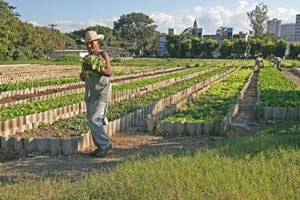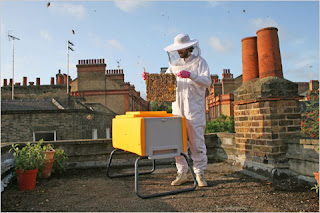
By David Tracey, Yesterday, TheTyee.ca
Last year all of us were afforded a frightening glimpse of how expensive fuel can trigger a global food crisis. And then, when zooming oil prices tumbled again (for now), causing food commodity prices to drop (for now), our news media moved on.
But I didn't. I became interested in Cuba as an example of how to adapt when the next, similar crisis comes -- and stays.
Peak oil hit the island with a crash when the Soviet Union imploded in 1989. A food system built on false economic pretenses -- subsidized oil and fertilizers from Russia which also paid inflated prices for Cuban sugar -- suddenly disappeared. So the country with the most industrialized agricultural system in Latin America, and a farming strategy built on monocrop exports, was left to fend for itself. It didn't help when the U.S. government tightened its trade embargo in 1992.
Full article here




